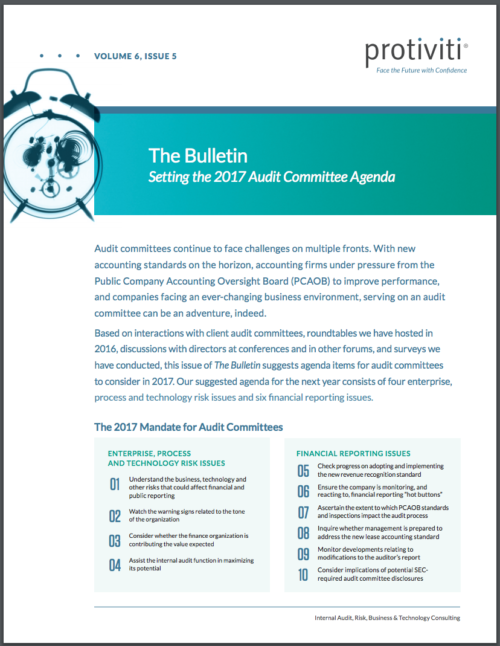with contributing authors Michelle Mizutani and Shunsuke Nagae
The handful of foreign official bribery prosecutions in Japan have not satisfied the Organisation for Economic Co-operation and Development (the OECD), which renewed its pleas for the country to prioritise its battle against international bribery in June 2016. This article examines Japan’s responses to the OECD’s demands, the latest developments in Japan’s foreign official bribery laws and the implications for Japanese multinational corporations and foreign companies with potential exposure to the Unfair Competition Prevention Act (the UCPA).
Prevention of Foreign Official Bribery – Japan
After Japan’s accession to the Convention on Combating Bribery of Foreign Public Officials in International Business Transactions, Japan amended the UCPA in 1998 (effective February 1999) to create the offence of foreign official bribery.
Article 18 of the UCPA provides that it is illegal to give, offer or promise bribes to non-Japanese public officials. The UCPA only penalises the giver of the bribe, not the recipient. Japanese nationals are liable for bribing foreign public officials inside or outside of Japan. A non-Japanese individual may be punished if any part of the bribe is committed in Japan.
When a representative, agent or employee of a company violates the UCPA in relation to a company’s business, the company itself may also be punished. Japanese law will presume that the company was negligent in its selection and oversight of such representative, agent or employee and in preventing such person from committing illegal acts. In order to escape liability, the company must prove that it had exercised the due care necessary to prevent the violation.
It is important to note that a non-Japanese company could be prosecuted if its representative, agent or employee bribes (in relation to the company’s business) a foreign public official (i.e., a non-Japanese public official) or commits part of such a bribe whilst in Japan. Moreover, a non-Japanese company could also face liability if any of its Japanese national representatives, agents or employees bribe (in relation to the company’s business) a foreign public official, inside or outside of Japan.
The maximum penalty for an offence is: (i) for natural persons, five years’ imprisonment and/or a fine of JPY5 million; and (ii) for companies, a fine of JPY300 million.
Repeated Exhortations from the OECD & Japan’s Response
Heeding the OECD’s pleas to intensify its measures to combat foreign official bribery, Japan established, in April 2014, an action plan to create resources in certain prosecutor and police offices to detect and investigate foreign official bribery by Japanese companies. Effective October 2016, Japan’s anti-money laundering laws were amended to strengthen reporting obligations of specific business operators, defined broadly, in relation to suspicious transactions.
In July 2015, the Ministry of Economy, Trade and Industry (METI), which administers the UCPA, revised its Guidelines for the Prevention of Bribery of Foreign Public Officials (the 2015 METI Guidelines). The 2015 METI Guidelines describes the procedures commercial organisations should put in place to prevent associated persons from bribing.
Despite the repeated OECD exhortations, only four cases of foreign bribery have been prosecuted in Japan since 1999.
Implications for Japanese Corporations and Foreign Companies
Given the repeated pressure from the OECD, it would not be surprising to see Japan begin prosecuting more foreign bribery cases.
Accordingly, it is important for Japanese companies and foreign companies with potential exposure to the UCPA to take steps to prevent incidences of bribery by their representatives, agents and employees.
The 2015 METI Guidelines provide illustrative steps a company should take to prevent bribery and concluded that for a company to be discharged of liability for the acts of its representatives, agents and employees, the steps it takes must be in the form of proactive and specific instruction. The METI Guidelines note that it is important to keep in mind the importance of the attitude and message from top management, to take a risk-based approach and to ensure that effective preventative systems are not only well-structured, but also well-operated and evaluated at appropriate frequency. The methods addressed include:
- The formulation and announcement of anti-bribery policies and internal rules governing high-risk business activities (e.g., the provision of entertainment, appointment of agents/consultants, engaging in projects that foster close contact with officials, selection of joint venture partners etc.) and employee sanctions for engaging in bribery;
- The development of organisational frameworks (e.g., the appointment of a compliance officer, establishment of hotlines and a system to follow up suspicions/concerns);
- The implementation of educational activities in the company;
- Regular and irregular audits to assess whether preventative systems are functioning;
- Evaluation and review of the effectiveness of the preventative systems based on the results of regular audits.
Although the 2015 METI Guidelines primarily deal with Japanese companies seeking to expand overseas, it is still a useful reference for other companies which also face potential liability under the UCPA.



 Wendy L. Wysong is a partner at
Wendy L. Wysong is a partner at 









